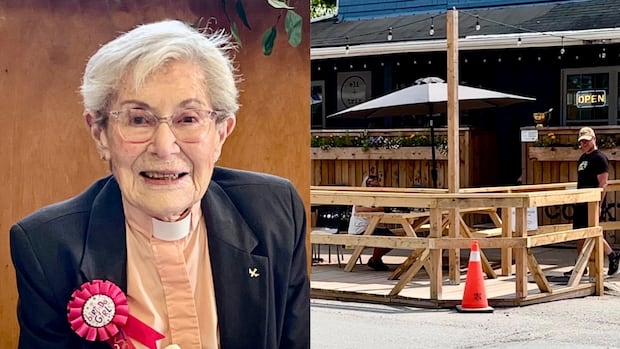Voters with disabilities eventually cast ballots after complaints in Richmond County
Two voters with mental disabilities were eventually allowed to cast ballots during Richmond County’s municipal elections on Saturday, but only after several complaints were raised and Nova Scotia’s municipal elections officer intervened.
Wanda MacDonald said her brother, Randy David — who has Down syndrome — and a woman who was with him were initially barred from voting.
MacDonald said her brother was allowed to mark his X after his caregiver argued with the returning officer, but only if the election official could watch him in the voting booth.
“That should have never happened because that technically is illegal, because your vote is private,” she said.
MacDonald said the other voter with her brother was turned away.
MacDonald complained to the returning officer and several others called the returning officer and the province to complain on behalf of both voters.
‘I’m not looking for him to be fired’
She said the other voter was eventually called back and allowed to cast a ballot. The next day, her brother got a personal apology from the returning officer.
“I was very happy with that,” MacDonald said. “I’m not looking to ruin [the returning officer’s] life. I’m not looking for him to be fired. I’m just looking at the fact that this is not right and needs to be corrected.”
Information Morning – Cape Breton13:29Two people with disabilities initially refused access to vote in Richmond County
Two voters with disabilities were only able to cast ballots in Saturday’s Richmond County elections after complaints were raised with the province.
MacDonald said the returning officer told her he was concerned about her brother’s ability to choose an election candidate for himself.
MacDonald said because her brother doesn’t read, she usually picks the best candidate who will understand and represent his needs.
“He doesn’t know who he’s voting for, as per se, that’s why we dictate for him who will help him. I’m not voting for me. We were voting for him,” she said.
Returning officer Clair Rankin declined to comment.
‘The very definition of discrimination’
After hearing about the voting problems, Lois Landry, the councillor-elect in the district where David voted, called Richmond PC MLA Trevor Boudreau, who then called the province and got the returning officer to reverse his stance.
Landry is a board member for the small options home where David lives. She also sits on the board of Inclusion Nova Scotia, a provincial organization that supports people with disabilities, and has a son who is autistic.
She told CBC Radio’s Information Morning Cape Breton she was heartened to see support for David and the other voter on social media.
She added, however, there were also comments about whether everyone with a disability has the capacity to vote — a debate she described as “just completely offensive and a really slippery slope.”
“It is discouraging to think that we are still ‘Yeah, butting’ the basic human rights of every one of our citizens,” Landry said.
“We don’t have civics tests for people who go into the polls.
“The idea that somehow we, as a society, would qualify or expect more from people with intellectual disabilities is the very definition of discrimination.”
Election staff can help, if requested
In an email, the Department of Municipal Affairs said the municipal elections officer spoke with the Richmond County returning officer on election day “to explain the relevant provisions in the Municipal Elections Act, in an effort to clear up any misunderstanding.”
According to Elections Nova Scotia, anyone needing help in the voting booth can be accompanied, as long as they both sign a declaration agreeing to it, and anyone can ask for help from a deputy returning officer if they wish.
But Landry said that’s only at the voter’s request, and it is not the right of elections workers to assess whether a person can cast a ballot.
“We wouldn’t do that for anybody else walking into the poll. Nobody else gets that kind of scrutiny,” she said.

Landry said her son, Frankie, has voted in every election since he became of age, with Landry helping him with his ballot after discussing with her son the various candidates.
But his right to vote should not be questioned, she said.
Last year, a Nova Scotia human rights board of inquiry set out 90 requirements in a five-year reform plan — known as the human rights remedy — intended to end discrimination against people with disabilities.
“We are finally trying to turn the corner,” Landry said. “Frankie’s vote, for me, is really about who serves Frankie’s best interests, and the idea that somehow somebody’s going to stand in front of me and say, “Mmm, don’t think so,’ that cannot be allowed to happen.”



